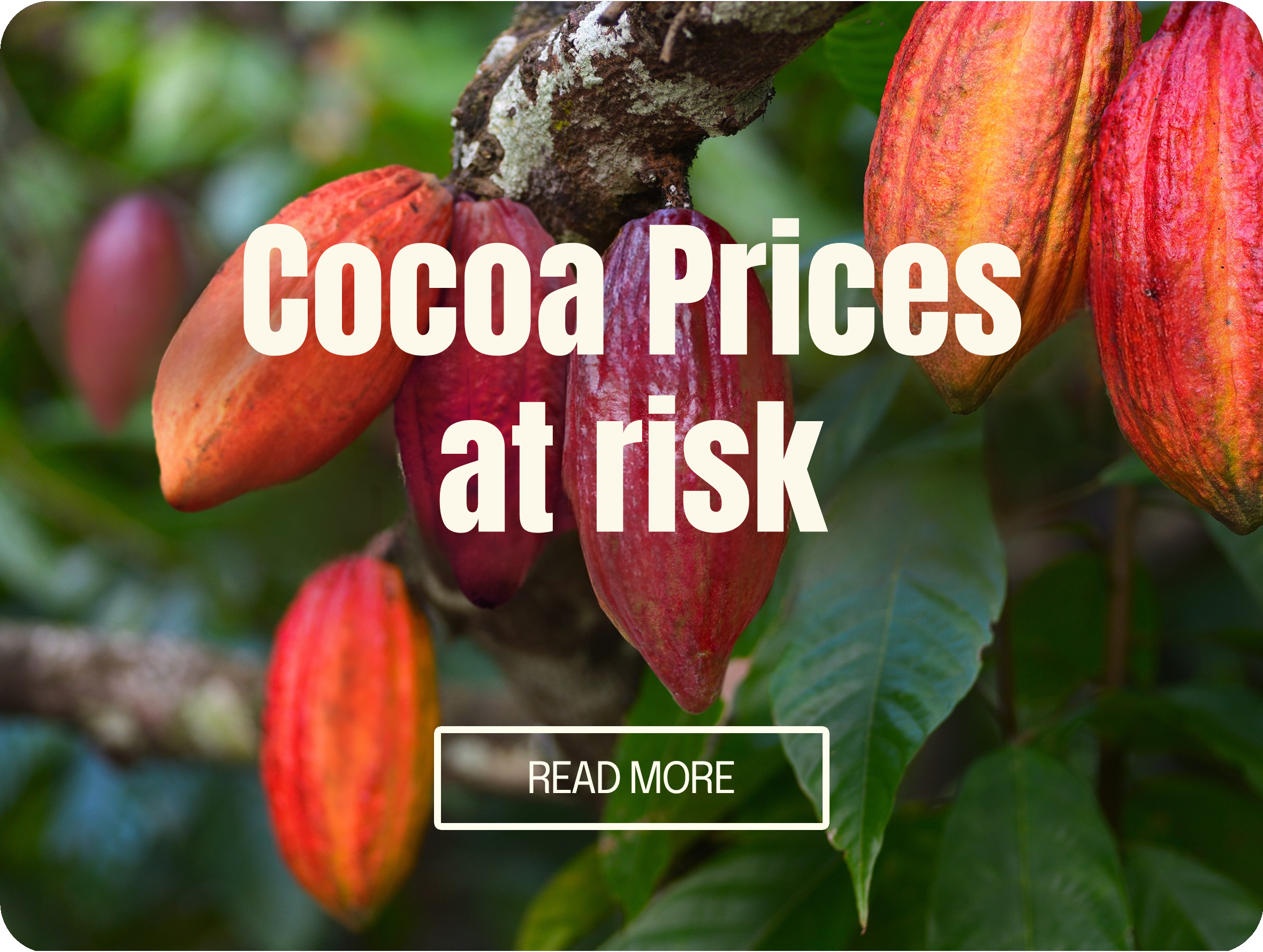
Smart Sourcing Protects Profit
CHAPTER 1: INSIGHT

Some ingredients carry hidden costs — from deforestation and child labour to public health risks. In global supply chains like coffee, cocoa, palm oil, red meat and tobacco, these risks are real. And reshaping both the market and our business.
-
We are acting with urgency:
→ All palm oil in edible products will be phased out by 2029
→ Coffee and cocoa sourcing is shifting to strict, third-party certifications, while we keep asking the tough questions certification alone cannot answer
→ We are tracing origins more closely, reducing red meat and boosting plant-based options
→ We are honest about tobacco’s place in our legacy, with a clear plan to reduce dependence over time
We know these are not challenges any one company can solve alone. But by facing them head-on, collaborating with suppliers and staying transparent, we can reduce the risks. For people, planet and business.
The thing is, we are already seeing the effects. Climate change is threatening key raw materials. Sugarcane yields are expected to drop by 60%, with beet sugar prices rising. Coffee production could fall by half, while flavour and quality suffer. Cocoa prices have already risen in the last year, driven by failed harvests linked to climate change.
Animal products face their own set of risks. The largest-ever outbreaks of avian influenza have disrupted global egg supplies and impacted milk production after bird flu was detected in cows. Meanwhile, African swine fever has devastated pig populations across Europe and Asia, with scientists warning of further outbreaks that could drive pork prices up by as much as 85%.
Behind these disease patterns is a deeper problem. The way we use land and animals has fundamentally changed the balance of our ecosystems. Today, 60% of the world’s mammal biomass is livestock, 36% is humans, and only 4% is wild animals. Among birds, 70% are poultry. This imbalance creates ideal conditions for zoonotic disease. Ones that spread between animals and humans to thrive.
But it does not stop there. New public health risks are emerging. Obesity rates are soaring, with half the world population expected to be overweight or obese by 2035, a trend accelerating among children. Governments are responding with tougher regulations on sugar, ultra-processed foods, and tobacco. In 2022, New Zealand introduced the world’s first age-based smoking ban, while similar restrictions are being explored elsewhere.
Less visible, but equally concerning, are new health threats linked to how food is produced and packaged, from antibiotic resistance driven by animal farming to microplastics and forever chemicals now found in our bodies. Scientists warn these issues could become major health crises within a few decades.
These commodities shape our value chain, our climate footprint, and our social responsibility. Cocoa prices soaring, coffee crops failing, avian flu disrupting supply chains, palm oil driving deforestation. It is all interconnected. Add new health regulations, consumer expectations, and the risks multiply.







